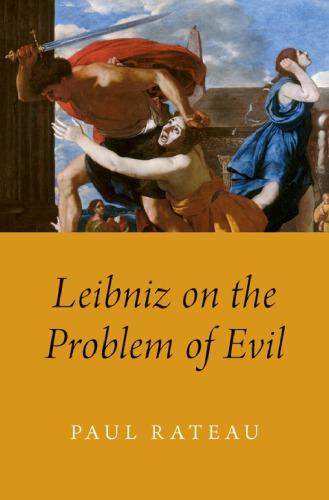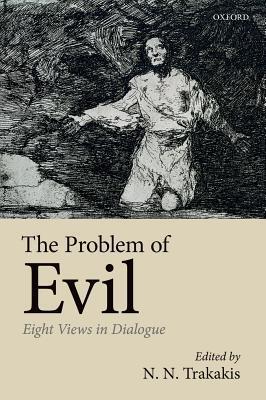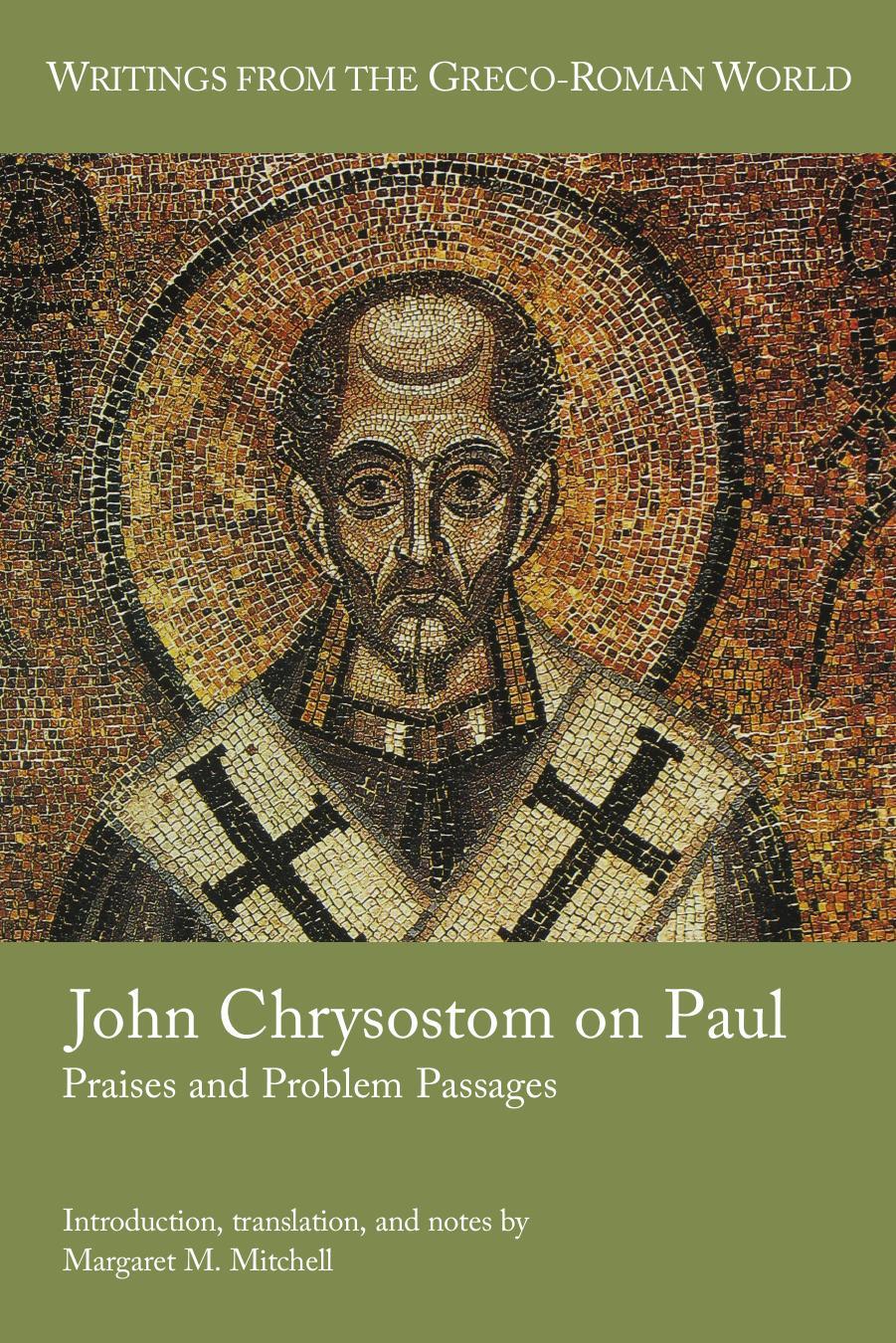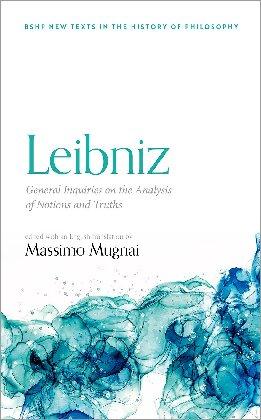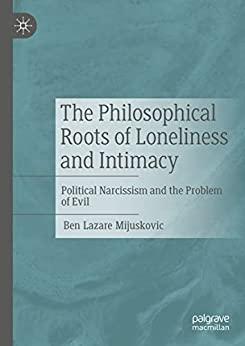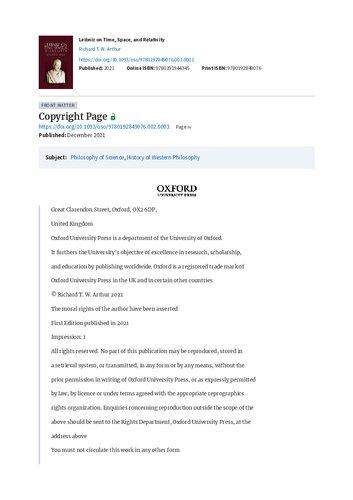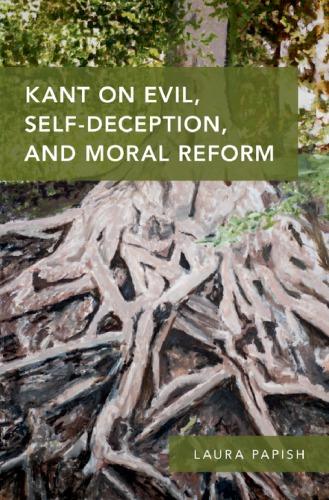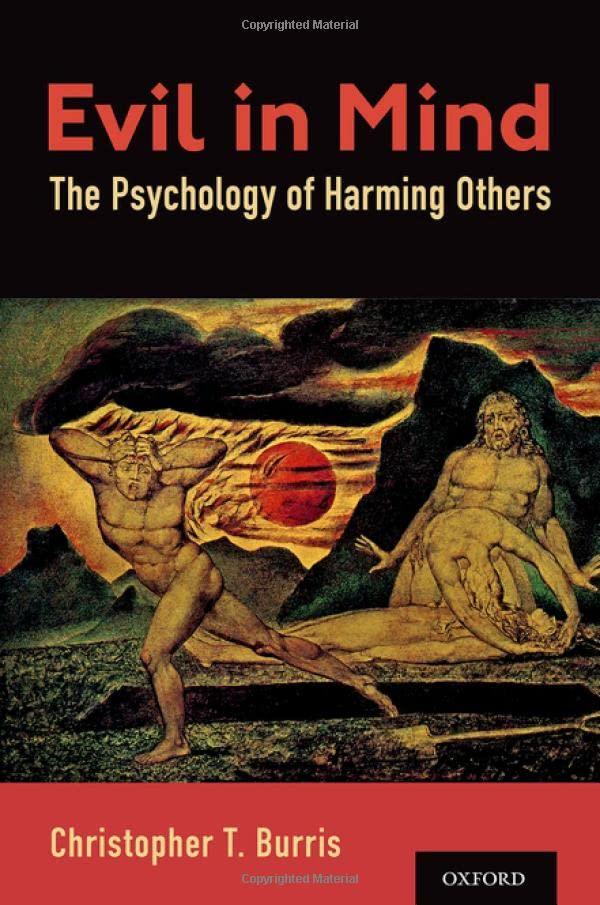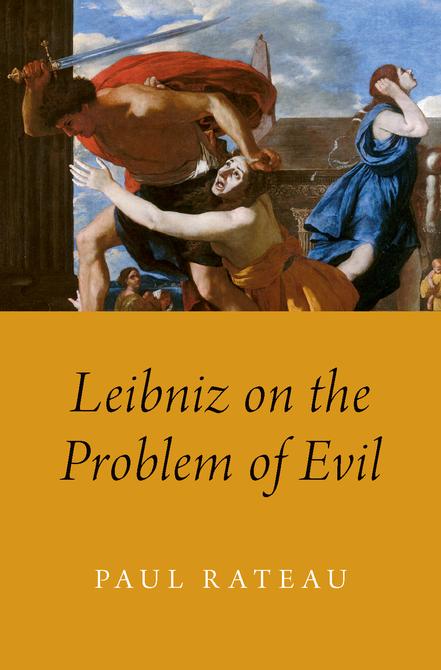1
Oxford University Press is a department of the University of Oxford. It furthers the University’s objective of excellence in research, scholarship, and education by publishing worldwide. Oxford is a registered trade mark of Oxford University Press in the UK and certain other countries.
Published in the United States of America by Oxford University Press 198 Madison Avenue, New York, NY 10016, United States of America.
© Oxford University Press 2019
All rights reserved. No part of this publication may be reproduced, stored in a retrieval system, or transmitted, in any form or by any means, without the prior permission in writing of Oxford University Press, or as expressly permitted by law, by license, or under terms agreed with the appropriate reproduction rights organization. Inquiries concerning reproduction outside the scope of the above should be sent to the Rights Department, Oxford University Press, at the address above.
You must not circulate this work in any other form and you must impose this same condition on any acquirer.
Library of Congress Cataloging- in- Publication Data
Names: Rateau, Paul, author.
Title: Leibniz on the problem of evil / Paul Rateau. Other titles: Question du mal chez Leibniz. English Description: New York : Oxford University Press, 2019. | Includes bibliographical references and index.
Identifiers: LCCN 2018050787 (print) | LCCN 2019011220 (ebook) | ISBN 9780199996513 (updf) | ISBN 9780199350971 (online content) | ISBN 9780190054564 (epub) | ISBN 9780199996506 (cloth : alk. paper)
Subjects: LCSH: Leibniz, Gottfried Wilhelm, Freiherr von, 1646-1716. Essais de th?eodic?ee. | Theodicy. | Good and evil. | Free will and determinism. Classification: LCC B2590 .Z7 (ebook) | LCC B2590 .Z7 R3813 2019 (print) | DDC 231/.8—dc23
LC record available at https://lccn.loc.gov/2018050787
1 3 5 7 9 8 6 4 2
Printed by Sheridan Books, Inc., United States of America
CONTENTS
Acknowledgments vii
List of Abbreviations ix
Introduction 1
1. The Existence of Evil 1
2. Evil Considered in Relation to Justice 5
3. A Vocation: To Defend God’s Justice 10
1. Difficulties Concerning the Justification of God in the Years Prior to 1673 18
1.1. Early Reading and the Relation of Justice to Power 18
1.2. A Just God, Who Is Nevertheless The Author of Sin? 32
2. The Confession of a Philosopher: Divine Justice and the Necessity of Sin 54
2.1. God as Ground, but Not Author of Evil 54
2.2. Permission of Evil and the Distinction of Two Kinds of Necessity: A Limited Rehabilitation 66
3. Theoretical Changes After the Confession of a Philosopher: Toward a New Conception of God, the Possible, and Divine Concurrence with Evil 88
3.1. A Revised Theology and Metaphysics 89
3.2. The Origin of Evil and God’s Physical Concurrence 108
3.3. God’s Moral Concurrence with Evil and the Relation of Part to Whole 119
4. The Genesis of Theodicy: Its Scientific and Apologetic Aims 142
4.1. From the Project of “Theodicies” to the Composition of the Essays of Theodicy: Systematic Necessity and Occasional Cause 143
4.2. Theodicy as Defense: Ignorance of Detail, Presumptions, and Probabilities 160
5. The Best of All Possible Worlds and Divine Permission of Evil 183
5.1. The Thesis of the Best of All Possible Worlds 184
5.2. The Moral Necessity of the Divine Choice 200
5.3. God’s Moral Concurrence with Evil: The Doctrine of Permission 216
6. Evil in Being and in the Actions of Creatures: Reality or Appearance? 241
6.1. God’s Physical Concurrence, the Origin and Nature of Evil 241
6.2. The Inertial Model and Its Application to Creaturely Actions: From Peccability to Malice 258
6.3. Real Defect or False Appearance: A Dual Conception of Evil 276
7. Human Freedom and Principles of Action 300
7.1. The Labyrinth of the Free and the Necessary and the Prerequisites of Freedom 302
7.2. From the Ideal to the Real: The Exercise of Freedom and the Maxims of Leibnizian Ethics 323
Conclusion 345
Bibliography 351 Index 359
ACKNOWLEDGMENTS
I would like to express my deep gratitude to Todd Ryan for his very careful translation, helpful advice, and comments. This work would not have been possible without his continuing commitment and friendly support.
I would also like to thank Mark Kulstad who first had the idea for this project and Samuel Newlands who warmly welcomed and supported it. Finally, I am grateful to the John Templeton Foundation who generously granted their financial support.
ABBREVIATIONS
ABBREVIATIONS FOR LEIBNIZ’S WORKS
A Leibniz: Sämtliche Schriften und Briefe. Edited by Prussian Academy, then Berlin-Brandenburg Academy, and Academy of Göttingen. Darmstadt, then Leipzig and Berlin, 1923–Cited by series, volume, and page number.
AG Philosophical Essays. Translated by Roger Ariew and Daniel Garber. Indianapolis: Hackett, 1989.
C Opuscules et fragments inédits de Leibniz. Extraits des manuscrits de la bibliothèque de Hanovre. Edited by Louis Couturat. Paris: Alcan, 1903; repr. Hildesheim: Georg Olms, 1966.
Causa Dei Causa Dei asserta per Justitiam ejus, cum caeteris ejus Perfectionibus, cunctisque Actionibus conciliatam. Cited by section number.
CP Confessio Philosophi (The Confession of a Philosopher).
DM Discourse on Metaphysics. Cited by section number.
Dutens G. G. Leibnitii Opera omnia, Nunc primum collecta. In Classes distributa, praefationibus et indicibus exornata, studio L. Dutens. 6 vols. Geneva: 1768; repr. Hildesheim: Georg Olms, 1990.
FC (L) Lettres et Opuscules inédits de Leibniz. Introduction by Louis- Alexandre Foucher de Careil. Paris: Ladrange, 1854; repr. Hildesheim: Georg Olms, 1975.
FC (NL) Nouvelles lettres et opuscules inédits de Leibniz. Introduction by Louis- Alexandre Foucher de Careil. Paris: Durand, 1857; repr. Hildesheim: Georg Olms, 1971.
FC (O) Œuvres de Leibniz, publiées pour la première fois d’après les manuscrits originaux. Notes and introduction by
( x ) List of Abbreviations
Louis- Alexandre Foucher de Careil. 7 vols. Paris: Didot, 1859–1875; repr. Hildesheim: Georg Olms, 1969.
GB Briefwechsel zwischen Leibniz und Christian Wolff. Aus den Handschriften der Königlichen Bibliothek zu Hannover. Edited by C. I. Gerhardt. Halle: 1860; repr. Hildesheim: Georg Olms, 1971.
GM Leibnizens mathematische Schriften. Edited by C. I. Gerhardt. 7 vols. Berlin then Halle: 1849–1863; repr. Hildesheim: Georg Olms, 1962. Cited by volume and page number.
GP Die philosophischen Schriften von Leibniz. Edited by C. I. Gerhardt. 7 vols. Berlin 1875–1890; repr. Hildesheim: Georg Olms, 1960–1961. Cited by volume and page number.
Grua Leibniz. Textes inédits d’après les manuscrits de la Bibliothèque provinciale de Hanovre, ed. and notes by Gaston Grua. 2 vols. Paris: PUF, 1948.
Guhrauer Leibniz’s Deutsche Schriften. Edited by G. E. Guhrauer. 2 vols. Berlin, 1838–1840.
Huggard Gottfried Wilhelm Leibniz. Theodicy. Essays on the Goodness of God, the Freedom of Man and the Origin of Evil. Edited and with an introduction by Austin Farrer. Translated by E. M. Huggard. New Haven: Yale University Press, 1952.
K lopp Die Werke von Leibniz gemäss seinem handschriftlichen Nachlasse in der Königlichen Bibliothek zu Hannover. Edited by O. Klopp. Series I. 11 vols. Hanover, 1864–1884.
L G. W. Leibniz. Philosophical Papers and Letters . Edited and translated by Leroy E. Loemker. Dordrecht: Reidel, 1969.
LR The Leibniz-Des Bosses Correspondence. Edited and translated by Brandon C. Look and Donald Rutherford. New Haven: Yale University Press, 2007.
Mollat Mittheilungen aus Leibnizens ungedruckten Schriften. Edited by Georg Mollat. Kassel, 1887; repr. Leipzig, 1893.
NE New Essays on Human Understanding. Cited by book, chapter, and section number.
Pk De Summa Rerum: Metaphysical Papers, 1675–1676. Edited and translated by G. H. R. Parkinson. New Haven: Yale University Press, 1992.
PNG The Principles of Nature and of Grace, Based on Reason. Cited by section number.
R The Political Writings of Leibniz. Edited and translated by Patrick Riley. Cambridge: Cambridge University Press, 1972.
RB New Essays on Human Understanding. Translated by Peter Remnant and Jonathan Francis Bennett. Cambridge: Cambridge University Press, 1996.
S Monadology and Other Philosophical Essays. Gottfried Wilhelm von Leibniz. Translated by Paul and Anne Martin Schrecker. With an Introduction and Notes by Paul Schrecker. Indianapolis, New York, Kansas City: Bobbs-Merrill, 1965.
Sleigh G. W. Leibniz. Confessio Philosophi. Papers Concerning the Problem of Evil, 1671–1678. Edited, translated, and with an introduction by Robert C. Sleigh, Jr. New Haven and London: Yale University Press, 2005.
SLT The Shorter Leibniz Texts: A Collection of New Translations. Edited and translated by Lloyd Strickland. London: Continuum, 2006.
T Theodicy: Essays on the Goodness of God, the Freedom of Man and the Origin of Evil. Cited by section number.
T ob Observations on the Book Concerning the Origin of Evil Published Recently in England. Cited by section number.
T pd Preliminary Discourse on the Conformity of Faith with Reason. Cited by section number.
T ref Reflections on the Work Published by M. Hobbes in English on Freedom, Necessity and Chance. Cited by section number.
T s Summary of the Controversy reduced to Formal Arguments.
ABBREVIATIONS FOR OTHER PRIMARY SOURCES
Aquinas
ST Summa Theologica. Translated by Fathers of the English Dominican Province. New York: Benzinger Brothers, 1947.
Bayle
OD Œuvres Diverses de Mr. Pierre Bayle. 4 vols. The Hague: 1727–1761; repr. Hildesheim: Georg Olms, 1964–1982.
xii ) List of Abbreviations
Descartes
AT Œuvres de Descartes. Edited by Charles Adam and Paul Tannery, 11 vols. (plus a vol. including biography and supplement). Paris: L. Cerf, 1897–1913. New edition: Paris: Vrin/CNRS, 1964–1974.
CSM The Philosophical Writings of Descartes. Edited and translated by John Cottingham, Robert Stoothoff, and Dugald Murdoch. 2 vols. Cambridge: Cambridge University Press, 1985.
CSMK The Philosophical Writings of Descartes. Volume 3: The Correspondence. Translated and edited by John Cottingham, Robert Stoothoff, Dugald Murdoch, and Anthony Kenny. Cambridge: Cambridge University Press, 1991.
Hobbes
EW The English Works of Thomas Hobbes of Malmesbury. Edited by William Molesworth. 11 vols. London: Bohn, Longman, Brown, Green, and Longmans, 1839–1845.
Luther
WA D. Martin Luthers Werke: Kritische Gesamtausgabe [Weimarer Ausgabe]. 120 vols. Weimar: H. Böhlau and H. Böhlaus Nachfolger, 1883–2009.
Introduction
1. THE EXISTENCE OF EVIL
Let it be said from the outset: for Gottfried Wilhelm Leibniz (1646–1716), evil is not an enigma or an “unparalleled challenge” threatening to put an end to philosophy and rational theology. Far from posing an unsolvable theoretical problem,1 evil does not defy rational investigation. Nor does this examination lead to the denial of the reality of evil in the world—although Leibniz refuses to exaggerate its extent, with the result that he has sometimes appeared to commentators as lacking a “dramatic sense of sin”2 and as shrugging off the “tragedy of human existence.”3 On the contrary, for Leibniz, the fact of evil is undeniable:
[O]ne cannot deny that there is in the world physical evil (that is, suffering) and moral evil (that is, crime) and even that physical evil is not always distributed here on earth according to the proportion of moral evil, as it seems that justice demands.4
Evil is not a mere appearance that results from our partial understanding of things and vanishes altogether when we regard the universe from the correct point of view. Although, metaphysically speaking, evil is merely a privation, it is not a pure nothing, but that which limits perfection and being and so resists and impedes the good. The forms that evil takes (flaws, disorders, natural calamities, monsters, errors, ignorance, sin, vice and pain) are as varied as the good it limits, even if it is reduced at Theodicy §21 to three fundamental kinds (metaphysical, physical, and moral evil).
Leibniz neither questions nor seeks to minimize either the effects themselves or their pervasiveness—indeed, prosperity—in the world. In thinking about evil, Leibniz does not ignore experience, even if he refutes objections against providence based solely on its evidence.
Leibniz is not unaware of the evils and misfortunes of his time. On the contrary, his philosophical investigation is undertaken from a practical perspective. As Donald Rutherford has convincingly argued,5 Leibniz’s Theodicy and metaphysics are indissolubly linked to moral concerns and are wholly oriented toward the improvement of the human condition through the exercise of reason. However, his goal is not exclusively moral in the strict sense of the term, for it is also, more broadly, political and religious. In keeping with his well-known motto, Theoria cum praxi (“Theory with Practice”), Leibniz’s philosophical reflection on evil is accompanied by a constant and relentless struggle against the concrete forms in which evil appears in the world. The various undertakings and projects he pursued during the course of his life—however various and disparate they may appear— were all born of a desire to work for the perfection and happiness of human beings, including at the material level, by relieving their misery. These efforts included attempts at reunification of the churches (both among the Protestant churches and with Rome); scientific projects (an encyclopedia of human knowledge, plans for the foundation of academies and learned societies); mathematical and technical inventions; support for the arts and literature; research relating to demographics and the economy (especially the idea of founding insurance funds and creating public storehouses permanently stocked with primary goods); proposals to reform the law and contemporary judicial procedures; and political and diplomatic missions. All of these projects and undertakings illustrate his firm conviction that intellectual activity ought not to be separated from action and “engagement” in the world in the service of neighbor and society. The just man must consider everything he does and everything for which he labors from the perspective of the “general good” and the glory of God. Leibniz well understood the contemporary situation in Germany, which had been exhausted by the Thirty Years’ War (1618–1648). He describes the suffering of this war, which saw German princes tear each other apart, and whose effects continued to be felt long after the signing of the Treaty of Westphalia.6 In various pamphlets and manifestos, Leibniz took exception to the expansionist politics of France and denounced the disastrous consequences of the wars instigated by Louis XIV.7 In a letter to Marshal Villars (May 1704), Leibniz expresses outrage at the terrible repression of the Protestants of Cevennes carried out by Villars under orders from Louis XIV and accuses Villars of becoming “the infamous minister of his
[the king’s] fury and the cruel executioner of his innocent compatriots.”8
When reading these pages in which Leibniz vigorously denounces the injustices committed by France in Europe, and the inhumanity, cruelty, and barbarism of Marshal Villars, one can almost wonder whether this is the same man who defends the existence of the best of all possible worlds! André Robinet has rightly wondered, “What is the meaning of the Theodicy, if Leibniz was so familiar with the existence of real and concrete evil?”9 Is there a gap between Leibniz the metaphysician and Leibniz the pamphleteer and politician? The thesis of the best of all possible worlds does not imply the perfection of every one of its parts. In no way is this thesis the result of blindness, ignorance, or indifference to worldly affairs. It does not amount to a legitimization of the present state of things on the grounds that they cannot fail to be good, since they belong to the best of all possible worlds. Nor should it lead to resignation or inaction. On the contrary, the task of the just man is to work tirelessly for the good, despite all obstacles and setbacks, and to make the future better to the utmost of his ability by altering those things that need reform.
Thus, Leibniz is perfectly aware of the weight of evil in the world and of its consequences at every level: moral, religious (confessional divisions, intolerance), social, economic (poverty, famine), and political (war and its attendant evils). For Leibniz, the sole source of evil is man. For this reason, “it is only the will that men lack to deliver themselves from an infinity of evils.”10 Indeed, the will of some few would often suffice to bring relief to entire nations. Man is “one of the most powerful creatures and one of the most capable of causing evil.” The faculty of reason with which he is endowed makes him capable of causing much evil, for which reason “one single Caligula, one Nero, has caused more evil than an earthquake. An evil man takes pleasure in causing suffering and destruction, for which there are only too many opportunities.”11 Here, forty- five years prior to the Lisbon earthquake (1755), is Leibniz’s response to those who would accuse God of all the disorders of the world: no natural evil can compare to what human beings do and are capable of doing to one another.
Must we then conclude that Leibniz held a rather dim view of human beings and that behind his metaphysical “optimism” lies a certain anthropological “pessimism”? Certain texts can give this impression.12 However, Leibniz generally avoids excessively dramatizing evil and exaggerating human misery in the manner of Augustine, Luther, or Pascal. For Leibniz, even if human beings cannot be saved without Christ, it does not follow that pagan virtue is a false virtue and that of necessity all of their actions are sinful.13 Leibniz has little regard for those authors who take pleasure in portraying humans as wicked and contemptible, hypocritical and
( 4 ) Leibniz on the Problem of Evil deceitful.14 By emphasizing evil, such accounts only add to it and lead us to believe that it generally predominates over the good. For Leibniz, it is unjust to degrade the human condition in this way. It is even sinful to portray human beings as so evil and contemptible, since it is a failure to recognize the goodness that God has shown us.15 In fact,
this [moral] evil is not even so great in men as it is declared to be. It is only people of a malicious disposition or those who have become somewhat misanthropic through misfortunes, like Lucian’s Timon, who find wickedness everywhere, and who poison the best actions by the interpretations they give to them.16
The disposition to “make an evil of everything” is fundamentally harmful to society and serves to teach human beings to be wicked.17 Furthermore, Leibniz is wary of those who speak of the evils and faults of humans “without the slightest intention of taking effective measures to remedy them,” and who prefer instead to waste their time “in impotent wishes and useless complaints.”18
Evil exists. However, our tendency is to exaggerate it. This explains the success of those who would portray human nature as depraved and the world as full of evil. In reality, human beings pay greater attention to evil than to good and, as a consequence, are more inclined to believe that on balance the evil of the universe outweighs the good both in quantity and intensity. Like health, the good often goes unrecognized. It is less noticeable and frequently passes unobserved, whereas evil is exaggerated.
It is only want of attention that diminishes our good, and this attention must be given to us through some admixture of evils. If we were usually sick and seldom in good health, we should be wonderfully sensible of that great good and we should be less sensible of our evils. But is it not better, notwithstanding, that health should be usual and sickness the exception?19
Thus, our sense that evils are greater and more numerous than goods does not prove that they really are so. On the contrary, it shows that they are not, since we notice only what is rare and pay no attention to the ordinary and habitual: “evil arouses our attention rather than good: but this same reason proves that evil is more rare.”20
Paradoxically, the tendency to exaggerate evil can be found among theologians as well as skeptics and atheists—although for exactly opposite reasons. Evil serves as an argument for apologists as well as critics. In the case of the former, the omnipresence of evil in the world shows the need
for a redeemer, the Christ. In the case of the latter, it calls into question either the existence of God or his unity and consequently his power (according to the Manichean hypothesis popularized by Pierre Bayle) or his justice. Leibniz seems to adopt a more measured approach. He does not dismiss the experience of evil; however, he treats it with caution in light of our natural tendency to exaggerate it. For Leibniz, evil cannot serve as the basis for a serious objection to the existence of God or to monotheism. On the other hand, it unquestionably poses a problem with regard to justice, which is an attribute traditionally ascribed to God. It is for this reason that a doctrine of God’s justice, that is, a théo-dicée in the literal sense of the term, is necessary.21 It is within the framework of this doctrine that the theoretical difficulties raised by the existence of evil can be resolved.
2. EVIL CONSIDERED IN RELATION TO JUSTICE
The manner in which Leibniz approaches the problem of evil is original in that it is explicitly connected with the theme of justice.22 The first question raised by evil is not “Why does it exist?” or the traditional “Where does it come from?” (Unde malum?), but rather “Who is responsible for it?” The issue is, in the first instance, moral and juridical because it is the question of imputation that is at stake. Obviously, the metaphysical aspects and implications of the problem are not overlooked, but they are considered only subsequently, when the inquiry turns to the origin of evil and its essence. Why does Leibniz adopt this juridical approach? As is well known, Leibniz was a jurist. In the preface of the Theodicy, he takes on the role of a lawyer who pleads the cause of God.23 As we shall see, Leibniz appeals in the defensive wing of the Theodicy to the rules of controversy that he set out in the Preliminary Discourse24 and that are clearly inspired by judicial debates.
However, I believe that Leibniz adopts a juridical point of view for a more fundamental reason: he considers injustice to be the true evil. Injustice is all that violates the law (natural or positive): injustice committed (sin) as well as injustice suffered (undeserved physical pain and moral grief). For Leibniz, evil is not a scandal in and of itself. It becomes shocking when it seems to be unjustly distributed, when pain befalls one who did not deserve it, when sin is not followed by any punishment and even proves profitable to the sinner. The existence of suffering, misfortune, calamity, and the fact that there are wicked people in the world would not be so problematic if this suffering as well as these misfortunes and calamities only happened to the wicked. In this case, evil would be easily justified, since it
would appear to be natural castigation for their sins. What gives rise to the problem is that the right order of things seems to have been turned upside down. We thus see that the good are persecuted and suffer, that criminals commit their crimes with impunity and even seem to be rewarded with happiness. Leibniz emphasizes this blatant contradiction between fact and right, which is felt to be intolerable under a God who is said to be good, wise, and all-powerful.25
Evil challenges divine justice in both its senses: as it refers to law, and as it refers to perfection. On the one hand, divine justice is the rule according to which God governs the whole universe, and in particular the republic of spirits, assigning rewards and punishments to each according to his merit. On the other hand, divine justice signifies holiness, which Leibniz defines as the highest degree of goodness.26 In accordance with his holiness, God always wills what is good. The apparent disorder of things (for example, prosperity among some of the wicked and misfortune among many of the good) calls into question divine justice taken in the first sense and seems to overthrow the idea of providence in the world. God’s physical and moral concurrence with evil (physical as well as moral evil) seems incompatible with justice taken in the second sense, as perfection. Every creature and every action owes its being and reality to divine omnipotence and continues to exist because of it (conservation is continuous creation). Consequently, God contributes to sins by his will and power, insofar as nothing would happen unless he made it happen and either willed or permitted it. At issue here is the problem of predestination and human freedom. The punishment of the “sinner” no longer appears legitimate if he could not have done otherwise (because his action would be completely predetermined) and if in fact the sin were ultimately imputable to God, as the primary cause of all things.
Considering this close link between evil and justice (taken in its two senses) and the terms in which the problem of evil is formulated, the solution can only be found in a doctrine of divine justice. This doctrine, which aims to establish God’s innocence and holiness by reason, is based on two presuppositions: (1) the idea of justice is absolutely univocal, that is, it is a single notion common to all spirits (including God); (2) this notion applies to all spirits and, as a consequence, the divine right is not the result, within universal jurisprudence, of a special regime, according to which God stands above the ordinary laws of justice and is properly speaking unaccountable for his actions.
(1) As early as 1663, Leibniz criticizes the Hobbesian reduction of justice to utility and civil law on the grounds that it opens the door to fiat and tyranny.27 However, positive and explicit affirmation of the univocity
of justice seems only to have appeared in conjunction with the systematic critique of Cartesianism that Leibniz undertook beginning in 1676. By making the good and the just depend not on the nature of things, but on the will of God, Descartes destroys divine justice and makes of God a tyrant, who cannot be the object of sincere love.28 However, Hobbes is also a target, insofar as he identifies right with pure power, by making justice that which is pleasing to the strongest (in accordance with the formulation that Plato attributes to Thrasymachus in the Republic).29 Leibniz refuses to place divine justice beyond the jurisdiction of reason, since divine right is a part of natural law, which applies universally to all spirits.
For my part, I believe that just as God’s arithmetic and geometry are the same as man’s, except that they are of infinitely greater extent, so too, natural jurisprudence and every other truth is the same in heaven and on earth. It must not be thought that God is capable of doing what for men would be tyranny.30
Descartes and Hobbes (together with some theologians) share the view that the rules of justice are freely instituted by God without any preexisting universal idea of justice independent of the divine will. On this view, the rules of justice are the mere effect of God’s will and omnipotence. For Leibniz, this is unacceptable for three reasons.
i. It renders the notion of justice completely meaningless. Justice is confounded with power and consequently signifies nothing more than its exercise (and so is nothing considered in itself): “For why praise [God] because he acts according to justice, if the notion of justice, in his case, adds nothing to that of action?.”31 Justice becomes a purely extrinsic denomination, without any foundation in things themselves, since a thing is just only because God did or willed it. In other words, whatever God wills is just by virtue of the fact that he wills it and not because it is just in itself. Furthermore, justice ceases to be an attribute by which we honor God since he is just no matter what he does, whether he performs a given action or its contrary.32 To make power the basis of right is “a failure to distinguish between right and fact. For what one can do is one thing, what one should do, another.”33 It is likewise a failure to distinguish right (droit) and law (loi).34
ii. Voluntarism replaces justice with an arbitrary power whose principle—namely, that the will stands in place of a reason (stat pro ratione voluntas)—is the “motto of the tyrant” and offers no way of distinguishing God from the devil or from the Manichean evil principle, who must be obeyed by constraint.35 It follows that “everything is just,
if it succeeds” including crimes, murders, and punishment of the innocent since, by definition, the one who holds power is never unjust.36 However, such a view is not only contrary to the idea of God but also harmful from a practical point of view, since it replaces enlightened and sincere love (based on recognition of the divine perfections, and, in particular, his goodness and justice) by pure fear. It is destructive of religion and encourages impiety.
iii. Voluntarism is untenable insofar as it violates the Principle of Sufficient Reason and ultimately rests on a contradiction. It presupposes a will that has no other reason than itself, which, as an absolute power to establish arbitrarily the good and the just, wills because it wills and not because the understanding presents it with a good to be sought. This notion places the will in a state of complete indifference with regard to any prior idea of the good and the just (which would be logically prior and to which it would incline).
Which is very strange. For if things are good or evil only as the result of God’s will, the good cannot be a motive of his will, being posterior to his will. His will, then, would be a certain absolute decree, without any reason.37
Voluntarism reverses the true order of things and the relation between cause and effect. Furthermore, the indifference it supposes, were it possible, would be perfectly sterile. For no decision or action could follow from it, since nothing determinate can result from the indeterminate. There could be no escape from this indifference without attributing to God the ability to will to will. However, this would involve a second error, for it would lead to an infinite regress of volitions.38
(2) The idea of justice is the same for all minds. However, Leibniz asserts once again that all minds are equally and without exception subject to it. Divine right is not based on a separate, particular right but is part of a single general juridical system. On this point, Leibniz stands in opposition to Lutheran theologians and to all defenders of an absolute divine right. To be sure, Luther did not deny God’s “justice.” However, he maintained that its rules are incomprehensible to us, at least in this life. Against the conception of justice as accessible to reason (the light of nature), Luther offered two strictly supernatural conceptions of justice, successively discovered by the light of grace and the light of glory. By this latter, God’s judgment, which “crowns one ungodly man freely and apart from merits, yet damns another who may well be less, or at least not more, ungodly” will be seen to express a “most perfect and manifest righteousness,” although unfathomable by our reason.39
For Leibniz such a distinction once again introduces an equivocation into the concept of justice, since it implies that justice is not the same for God and human beings. Luther’s doctrine of triple justice is indefensible at both the theoretical and practical level. How can we attribute to God a perfection that has nothing in common with our conception of it or, in other words, of which we are ignorant? How can we praise him as just, if we cannot judge his actions according to any known rule of justice?
Thus if someone wishes to maintain that the justice and the goodness of God have entirely different rules than those of men, he must recognize at the same time that these are two different notions, and that it is either voluntary equivocation or gross self-deception to attribute justice to both. Choosing, then, which of the two notions must be taken for that of justice, it will follow that either there is no true justice in God or that there is none in men, or perhaps that there is none in either, and that in the end one doesn’t know what he is saying when speaking of justice—but this would destroy it, in fact, and leave nothing but the name. As do those also who make it arbitrary and dependent on the good pleasure of a judge or of a powerful person, since the same action will appear to be just or unjust to different judges.40
Now to defend equivocity with regard to divine justice leads to a violation of the Principle of Contradiction, by affirming both that God is just and that he is not just, according to our ordinary understanding of the term. Thus, we cannot attribute to God a right that would exempt him from the principles of natural law without thereby affirming that he is not just and destroying the notion of a universal republic of spirits whose members (from rational creatures to God), because they differ only by degree of perfection and not by nature, are subject to the same laws.
Consequently, God possesses no right with regard to his creatures by which he may do with them as he pleases, even including damnation of the innocent. God’s omnipotence, our creaturely condition, and our perpetual dependence on him are not a sufficient basis for the absolute right advocated by Hobbes, Bradwardin, Pierre d’Ailly, Theodore Beza, Amyrault, and others.41 It is true that God is not subject to the law of any superior to whom he is accountable for his actions. Nevertheless, he is not unaccountable (anupeuthunos). For it is false to claim that God has no obligations42 and that therefore no one could ever be justified in making a complaint against him, were he to break a promise or condemn an innocent person.
For Leibniz, God’s justice does not consist in any such impunity or absence of responsibility. Although God has no superior, his absolute supremacy does not place him above the law. Therefore, it would be perfectly
legitimate to lodge a complaint against him were he to make tyrannical use of his power.
Thus, the damnation of an innocent man, the breaking of a divine promise, etc. would not be in conformity with justice, because such a way of acting would be completely contrary to the goodness and wisdom of God. And if, consequently, by virtue of this definition of justice, one wishes to call a right (albeit imperfect) that which an individual (with or without recourse) can rightly expect, and, which having failed to obtain, he can justly demand, it can be said that man also has to some extent a right with regard to God, as for example the right, based on divine promise, to what God has promised, the right, based on innocence, in the case where someone is innocent before God, not to be punished, etc.43
No complaint against God is inadmissible in principle (even if, as a matter of fact, such claims are always baseless, as Leibniz will demonstrate) or can be rejected simply on the grounds that God is omnipotent and has no obligations to anyone.44 To indict God and put him on “trial” before the tribunal of reason is possible. Whence the possibility and, indeed, the necessity—in order to respond to objections based on the existence of evil—of a Theodicy. To be sure God is subordinate to no one and owes nothing to human beings. However, “he cannot fail to satisfy himself”; he is obliged “to justify himself to himself as a wise sovereign.”45 His wisdom obligates him and demands justification of him. What he owes to wisdom (or owes to himself) is nothing other than what he owes to every spirit who consults reason.
3. A VOCATION: TO DEFEND GOD’S JUSTICE
“We will renounce the use of reason when God ceases to be wise or man to be rational.”46 For one who maintains—as Leibniz does— that God’s conduct is wise and that his actions must conform to the laws of universal jurisprudence, the defense of divine justice is not merely a legitimate undertaking, but a demand of reason. As Gaston Grua has observed, “throughout his whole life . . . with the fervor of a vocation, [Leibniz] defended divine justice.”47 He defended it not only against those who would question or deny it, but also against those who would form a false notion of it by portraying it as arbitrary or based on incomprehensible laws. Under various names and in different forms (“Catholic Demonstrations,” defense [vindicatio48], “quasi kind of science” or doctrine of God’s justice, pleading the cause of God, apology49), the project of Theodicy was long- standing and continuous,
given that Leibniz explicitly relates it to questions that had already occupied him when he was a student at the University of Leipzig (1661–1663). In a letter to Jablonski (1700), he writes:
However, from the age of sixteen, by a particular destiny [appointed by] God, it seems, I found myself drawn to an investigation in itself rather difficult and to all appearances rather disagreeable; however, I have not been fully satisfied until just a few years ago, when I truly discovered the reasons for contingency [rationes contingentiae], since prior to this I could not reply as fully as I would have liked to the arguments of Hobbes and Spinoza in favor of the absolute necessity of everything that occurs [pro absoluta omnium, quae fiunt, necessitate]. At that time I had formed the plan of writing a Theodicy in which I would defend [vindiciren] the goodness, wisdom and justice of God, as well as his supreme power and irresistible influence. However, this plan would greatly benefit if one day God were to give me the grace to develop properly these thoughts (of which you have seen only small samples) in oral conversation with excellent persons, in order to win over minds and promote the union of Protestant churches. However, that requires favorable circumstances.50
Three years earlier in a letter to Thomas Burnett,51 Leibniz had expressed his desire for the leisure and freedom from care “to deliver on [his] promises, made more than thirty years ago, to contribute to piety and the instruction of the public, concerning the most important subject of all,” that is, the problems of theology. The phrase “more than thirty years” refers to the period in which Leibniz was finishing his legal studies (1664–1666). Elsewhere, in a letter to Jaquelot, Leibniz speaks of the period beginning with his earliest reading (1661) up to his encounter with Arnauld in Paris (1672) as the time during which he became convinced that “one could offer a solid treatment of those points of theology that serve to free God from the imputation of evil and those of revealed religion that relieve us of the need to ascribe absolute damnation prior to any relation with sin.”52
It is true that these autobiographical accounts involve a certain amount of reconstruction, or even dramatization, especially where the vocation is said to have been directly inspired by God, as in the letter to Jablonski cited above. Nevertheless, they all agree in emphasizing the precociousness and careful preparation of a plan conceived well before his reading of Bayle’s Historical and Critical Dictionary. This plan, which was long in the making, was nurtured by much reading, meditation, and conversation with representatives of various confessions. For this reason, Leibniz feels justified in declaring that “there are perhaps few persons who have toiled more than I on this topic”53 or again that “since I have been thinking about this topic
( 12 ) Leibniz on the Problem of Evil
from the time of my youth, I claim to have treated it in depth.”54 The project of Theodicy has two practical aims. Its goal is to inculcate “true piety” (based on true knowledge of the divine perfections55) and to contribute to the reunification of the Protestant and Catholic churches.56 For God’s justice is one of the major points of doctrinal disagreement between the various religious confessions, insofar as it relates to the delicate and highly controversial question of predestination.
This dual practical aim seems to have informed Leibniz’s thinking from the time of his earliest writings. However, this should not cause us to overlook the theoretical evolution and conceptual shifts which his work also manifests. Rather, we ought to look with suspicion on those autobiographical references meant to suggest complete continuity of doctrine from his earliest writings to the Essays of Theodicy. To speak, as Leibniz does, of the project of Theodicy as long- standing is ambiguous and perhaps even misleading. There is no reason to doubt the claim that defending God’s justice was a project Leibniz had pursued from the time of his youth. On the other hand, there is room for serious doubt as to whether the concepts used and the theses advanced in conjunction with this defense remained the same throughout his career, whatever Leibniz himself may claim. Leibniz suggests for example that at the time of his stay in Paris (1672–1676), he had already shown in a Latin dialogue sent to Arnauld that
God, having chosen the most perfect of all possible worlds, had been prompted by his wisdom to permit the evil which was bound up with it, but which still did not prevent this world from being, all things considered, the best that could be chosen.57
However, it would seem that this thesis concerning God’s choice of the best possible world does not appear as such before the mid-1680s. In fact, the solution to the problem of evil that Leibniz presents during that period, in the Confession of a Philosopher for example, is significantly different (as we shall see).
Although the complete Academy edition of Leibniz’s works—and in particular the edition of the Theodicy and the immediately prior and contemporaneous texts— is as yet unfinished, careful study of the available texts reveals that, from the German opuscule On the Omnipotence and Omniscience of God and Human Freedom (1670–1671) to the Essays of Theodicy (1710) the Leibnizian doctrine of evil and divine justice underwent undeniable changes and shifts (while also showing undeniable similarities). The evolution of Leibniz’s thought on this subject has been largely (or even entirely) neglected by commentators.58 Evil provides the topic for a rich and
illuminating chapter in Gaston Grua’s magisterial Jurisprudence universelle et théodicée selon Leibniz. However, in that chapter Grua offers a rather static portrayal of Leibnizian doctrine. Texts prior to the Theodicy are not considered in themselves but are read merely as sketches of the future synthesis.59 Likewise, by portraying Leibniz’s theory of evil as virtually unchanging,60 Grua downplays its difficulties and internal tensions and is ultimately able to draw only the following disappointing conclusion:
Almost all of the final formulations [of the Theodicy] are traditional not only to Christianity, but for the most part since Stoicism and even Plato. However, the priority of eternal truths is characteristic of the Platonic school, and the uniqueness of optimism is characteristic of Leibniz.61
As for what Leibniz sees as original in his work—namely, his claim to have shown not only that it is possible that our universe is better than a universe without evil, but that it also must in fact be better than any other possible world—Grua doubts whether “this represents genuine progress.” In his view,
Besides the general difficulties it raises, optimism adds the paradox that permission of sin is not only permissible for God but obligatory. The same holds true of all evil.62
It follows, according to Grua, that the difference (which, in any case, was “hardly clear”) between being a means and being a condition disappears and the distinction between action and mere permission is eliminated. And yet, it is on this very distinction that Leibniz’s whole conception of God’s moral concurrence with evil is based!
The aim of the present work is to shed light on the complexity and evolution of Leibnizian thought concerning evil and God’s justice. It offers an account of the genesis and foundations of Theodicy, the subject matter of Leibniz’s only book of philosophy, properly speaking, to be published in his lifetime. It also aims to indicate the difficulties raised by this doctrine of divine justice, which its inventor hesitates to treat as a full-fledged science.63 Thus, the aim of the book is to explore the originality and implications of this theoretical and apologetic undertaking by showing how it differs from earlier attempts, syntheses and projects, even as it draws on some of their results.
The book is divided into seven chapters. The first three chapters examine Leibniz’s treatment of the question of evil and divine justice before the project of Theodicy had fully taken shape, which likely occurred between 1695
and 1697. The final four chapters consider the genesis of the Theodicy properly speaking— the arguments and theses that Leibniz develops as part of its two main wings (what I call the defensive wing and the doctrinal wing).
Chapter 1 casts doubt on the notion of a “voluntarist” phase of the young Leibniz, while acknowledging certain points of contact with Luther and Hobbes. It shows that the opuscule, On the Omnipotence and Omniscience of God and Human Freedom, while maintaining that God is just, suggests that he is the author of evil. Chapter 2 offers an interpretation of The Confession of a Philosopher showing that this first completed attempt at justifying God rests on a form of necessitarianism that makes God the reason (rather than the author) of evil and the first member of the universal series of things. It emphasizes the limits of Leibniz’s appropriation of the distinction between two kinds of necessity (per se/ex hypothesi) to be found in the text. Chapter 3 traces the doctrinal evolution that occurs following the Confession of a Philosopher in response to unresolved theoretical difficulties raised in that work. This evolution leads to a new conception of God (and of his relation to the world), a redefinition of the notion of the possible, and a reformulation of the doctrine of God’s physical and moral concurrence.
Chapter 4 examines the manner in which the project of Theodicy is developed, with regard to its apologetic and scientific aims and the context in which it is carried out. In particular, it focuses on analyzing the arguments used by Leibniz as part of the properly defensive wing of Theodicy. This wing is itself composed of two kinds of defense: a “negative” defense and a “supererogatory” defense. Chapter 5 shows how Leibniz seeks to establish the thesis of the best of all possible worlds and examines the meaning, presuppositions, and implications of the thesis. It considers whether God’s choice of this world is absolutely necessary and explicates Leibniz’s “final” doctrine of the permission of sin. Chapter 6 considers God’s physical concurrence with evil, the privative nature of evil, and the problems arising from its division into metaphysical, physical, and moral. It calls attention to two different and irreconcilable conceptions of evil to be found in Leibniz. According to the first, evil is a real defect that contributes to universal harmony, while according to the second, evil is merely an appearance, which vanishes upon considering the universe from the correct point of view. Finally, Chapter 7 shows how freedom can be reconciled with determinism, the truth of future contingents, and God’s foreknowledge. In addition, it shows the sense in which human freedom is ideally (idealiter) prior to the exercise of divine freedom. It explains the principles of moral action in a universe in which every rational creature is called upon to act as if both its own salvation and the glory of God depended solely on its efforts.
NOTES
1. See Ricœur, Le mal, 13 and 38–39.
2. The phrase is from Gaston Grua, JUT, 521.
3. Naërt, Leibniz et la querelle du pur amour, 63 note 53. Jacques Jalabert maintains that “Leibniz does not feel, in the same way as, for example Saint Bonaventure, what I have called the misery of sin; he lacks the anguish of a Pascal in the face of the drama of the human condition” (Le Dieu de Leibniz, 207).
4. T pd §43; GP VI, 75; Huggard, 98. See also T s I; GP VI; 376–377; Huggard, 378: “one must confess that there is evil in this world which God has made, and that it would have been possible to make a world without evil or even not to create any world, since its creation depended upon the free will of God.”
5. Rutherford, Leibniz and the Rational Order of Nature, 2–3 and 62–63.
6. “In fact, the two sides were at opposite extremes: they pursued one another with iron and fire, they treated one another as heretics, idolaters, as excommunicated and damned. Germany was inundated with blood, not to mention the other countries of Europe; there was an infinity of murders, conflagrations, sackings, sacrilegious acts, rapes, and other horrific evils, the greatest of which was the loss of millions of souls redeemed by the blood of Jesus Christ, as a result of these disturbances” (Ingrédients d’une Relation pour la Cour Impériale [late November–early December, 1700], A I, 19, 240, §4).
7. See in particular Mars Christianissimus, ou Apologie des Armes du Roy tres Chrestien contre les Chrestiens [Most Christian War-God, 1683], A IV, 2, 498–499; Mars Christianissimus ou Réflexions sur la déclaration de la guerre, que la France fait à l’Empire (Autumn 1688–1689), A IV, 3, 97–98.
8. Baruzi, Leibniz, 211.
9. Robinet, G. W. Leibniz, 251.
10. Leibniz to the Abbé Saint-Pierre (February 7, 1715), FC (O), IV, 325.
11. T §26; GP VI, 118; Huggard, 138.
12. See, for example, T §105; GP VI, 160; Huggard, 180 “It may be that fundamentally all men are equally bad, and consequently incapable of being distinguished the one from the other through their good or less bad natural qualities; but they are not all bad in the same way” and Causa Dei, §138.
13. See, for example, T §283. On this point, see my article “Leibniz, Bayle et la figure de l’athée vertueux,” in Leibniz et Bayle: Confrontation et dialogue, 301–329.
14. Cf. T §15, §220, and §258.
15. Réflexions sur l’Art de connaître les hommes (September 25, 1708), FC (L), 132.
16. T §220; GP VI, 249; Huggard, 264–265.
17. Cf. Réflexions sur l’Art de connaître les hommes (September 25, 1708), FC (L), 133.
18. Memoir for Enlightened Persons of Good Intention (circa 1692), A IV, 4, (7), 614; R 104.
19. T §13; GP VI, 109; Huggard, 130.
20. T §258; GP VI, 269; Huggard, 284.
21. As is well-known, Leibniz coined the neologism Théodicée from two Greek words: théos (God) and diké (justice).
22. See for example: On the Omnipotence and Omniscience of God, §§1–3, A VI, 1, 537; (Sleigh, 5–7); CP, A VI, 3, 116 (Sleigh, 27). In Of Liberty, Fate and God’s Grace, A VI, 4-B, 1596–1597, the demonstration of the proposition: “God is not the
